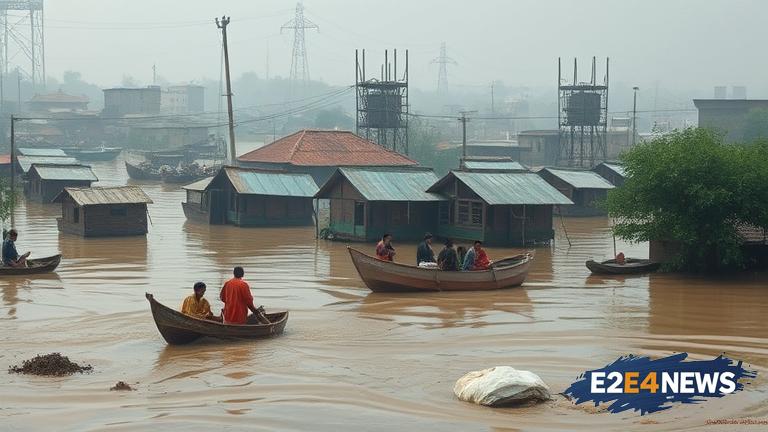Pakistan has been hit by one of the worst floods in its history, with the disaster affecting over 33 million people and causing widespread destruction across the country. The floods, which were triggered by heavy monsoon rains, have resulted in the loss of hundreds of lives and left millions without access to basic necessities like food, water, and shelter. The government of Pakistan has declared a state of emergency and is working to provide relief to the affected areas. International aid is also pouring in, with countries like the United States, China, and the United Arab Emirates providing financial and humanitarian assistance. The floods have caused significant damage to infrastructure, including roads, bridges, and buildings, and have also affected the country’s agricultural sector. The Pakistani military has been deployed to assist in relief efforts, with troops helping to evacuate people from flooded areas and distribute aid. The United Nations has also launched an appeal for $160 million to support the relief efforts. The floods have had a devastating impact on the country’s economy, with estimates suggesting that the damage could run into billions of dollars. The Pakistani government has announced plans to provide compensation to those who have lost their homes and livelihoods. The international community has come together to support Pakistan in this time of need, with many countries providing aid and assistance. The floods have also highlighted the need for climate change mitigation and adaptation efforts, as the country is likely to face more frequent and severe weather-related disasters in the future. The Pakistani government has announced plans to build more resilient infrastructure and to implement measures to reduce the risk of flooding. The relief efforts are ongoing, with many organizations and individuals working to provide support to those affected. The floods have also had a significant impact on the country’s healthcare system, with many hospitals and healthcare facilities affected by the flooding. The government has announced plans to provide medical assistance to those in need, including vaccinations and other essential healthcare services. The international community has also provided medical aid, including supplies of medicines and equipment. The floods have been described as a ‘climate catastrophe’ by the UN, and have highlighted the need for urgent action to address the impacts of climate change. The Pakistani government has announced plans to hold an international conference on climate change, to discuss ways to address the issue and to seek support from the international community. The floods have also had a significant impact on the country’s education system, with many schools and universities affected by the flooding. The government has announced plans to provide support to students and teachers, including the provision of temporary learning facilities. The relief efforts are expected to continue for many months, as the country works to recover from the devastating impact of the floods. The international community is likely to continue to play a significant role in supporting Pakistan’s relief efforts, as the country works to rebuild and recover from this disaster.
